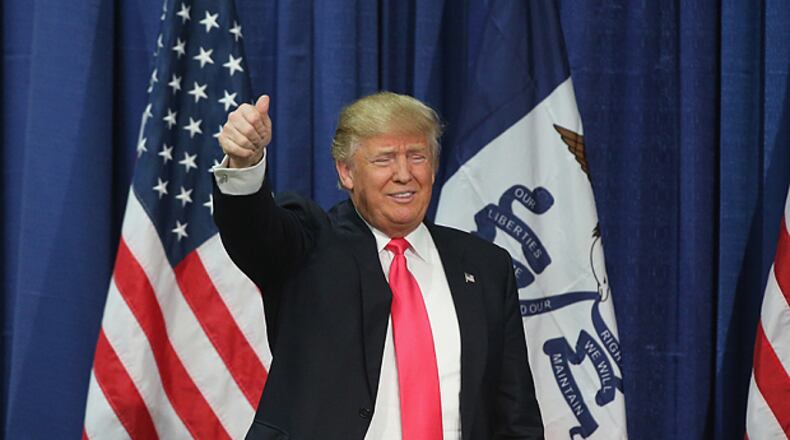Des Moines, Iowa - The Iowa caucuses are as much about who lost as they are about who won. And for billionaire Donald Trump, surging at the polls until the first votes were tallied, Monday was a bitter defeat.
Trump finished in second place behind Texas Sen. Ted Cruz with about 24 percent of the vote. Read another way, though, the long-time national frontrunner couldn't attract one quarter of Republican support in a state whose voters were inundated with his anti-establishment, tough-talking message.
What's worse for Trump, his appeal in Iowa always centered on whether he could mobilize first-time voters who had never caucused before. But a record Republican turnout fueled by new caucus-goers - a CBS exit poll showed 45 percent of GOP votes were from first-timers - didn't help him.
Why did he lose? Possible factors include a failure to mobilize the type of disciplined voter drive that usually wins these low-turnout affairs, a backlash against his decision to skip last week's Des Moines debate and a barrage of attack ads that portrayed him as a loose cannon and a shifty liberal.
What's clear, however, is that Trump failed to convert the thousands of Iowans who packed his rallies and told pollsters they would caucus for him into actual voters when it mattered.
Florida Sen. Marco Rubio, meanwhile, emerged as a dangerous new threat to both the insurgent candidates. Trump finished closer to Rubio, who tallied about 23 percent of the vote, than Cruz. And surveys of voters showed Rubio locked up most of the late-breaking vote, with about a third of his supporters deciding to back the Floridian in the last few days before the caucus.
Rubio proved Monday he's able to consolidate the mainstream Republican vote, finishing far ahead of other establishment candidates who languished at the bottom of the pack.
And Cruz showed remarkable strength in fending off not only Trump but also a gaggle of other conservatives aiming for the party's right flank, including retired neurosurgeon Ben Carson and the winners of the last two Iowa caucuses.
As the race shifts to New Hampshire, and its more moderate Republican electorate, Trump has a new target on his back. Republican rivals, including the gaggle of establishment candidates who already decamped to New England, now likely see him as vulnerable.
(Expect Rubio, too, to face more attacks from competitors who want to slow his rise in the polls.)
Trump, meanwhile, tried to take his defeat in stride. He used his concession speech to congratulate Cruz, bash Democrats and trumpet surveys showing he has a double-digit lead in New Hampshire - despite the fact that the polls that showed him prevailing in Iowa were wrong.
"On to New Hampshire," he said.
About the Author
The Latest
Featured




